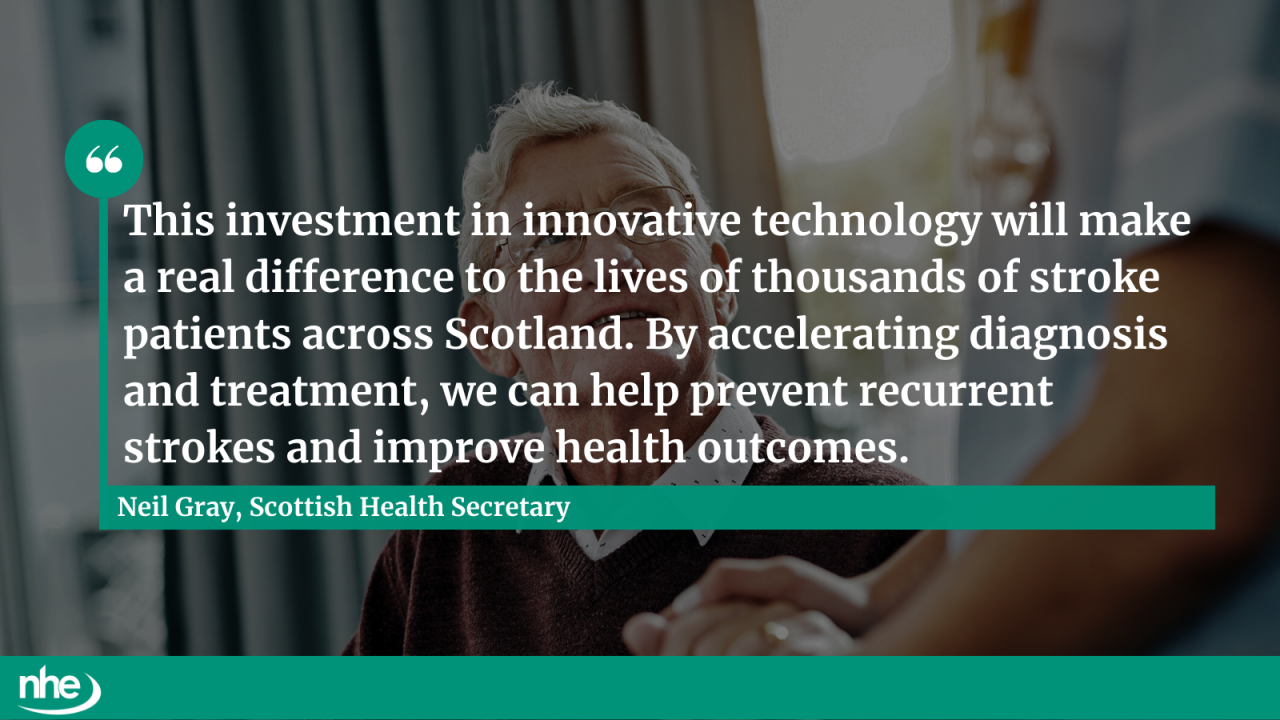Thousands of stroke patients in Scotland are set to benefit from a £1.9 million investment in mobile heart-rate monitors, which could prevent nearly 700 secondary strokes and save more than 300 lives over the next five years.
The funding from the Scottish Government will support the rollout of Ambulatory Electrocardiogram patch monitors for around 8,000 recent stroke patients annually. These compact, wireless devices are worn on the chest for up to 14 days and are four times more effective at detecting atrial fibrillation, a leading cause of stroke.
Unlike traditional bulky monitors, the new ECG patches are:
- Water-resistant and wireless
- Comfortable and easy to use
- Capable of reducing diagnosis and treatment times from 24 months to just three weeks
Patients can receive patches during diagnosis or have them posted directly to their homes, reducing travel and improving accessibility. Standardised access across Scotland will help eliminate regional disparities in care.
Commenting on the investment, Scottish Health Secretary Neil Gray said:
“The Scottish Government is clear that innovation will play a key role in reforming Scotland’s health service, and ensuring it remains able to meet the health challenges of a changing world. Projects such as this one are vital to improving patient outcomes, saving lives and enabling the NHS to treat people quicker and more effectively.
“This investment in innovative technology will make a real difference to the lives of thousands of stroke patients across Scotland. By accelerating diagnosis and treatment, we can help prevent recurrent strokes and improve health outcomes. The use of these new patch monitors is a fantastic example of how we are adopting cutting-edge solutions to renew Scotland’s NHS and ensure it can continue to deliver high-quality, efficient care.”

According to research, the rollout could:
- Prevent 689 secondary strokes
- Save 319 lives
- Free up the equivalent of 15.7 full-time cardiac physiologists
- Save the NHS £14.6 million over five years
This initiative is part of Scotland’s wider commitment to modernising healthcare, improving outcomes, and reducing pressure on frontline services.
Image credit: iStock



















